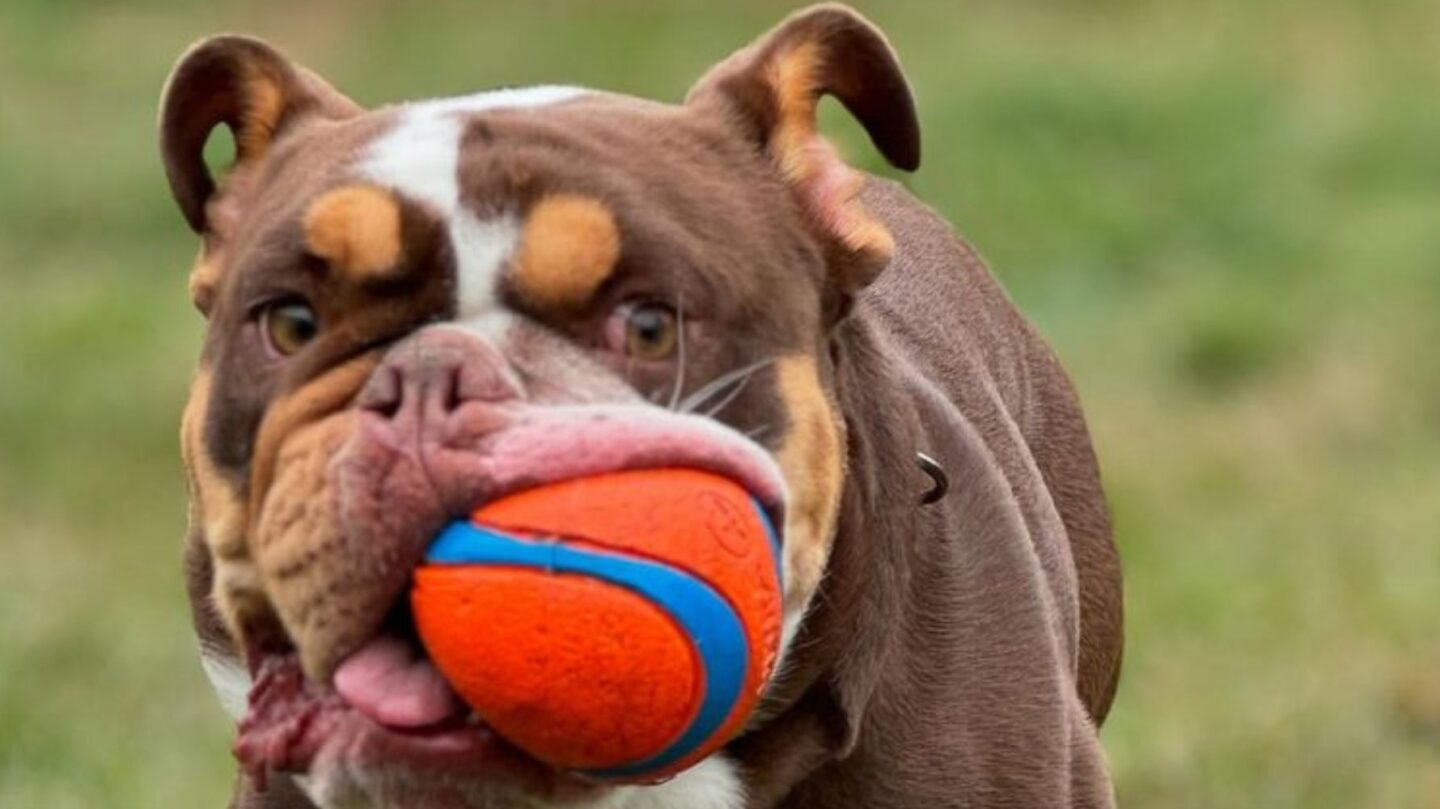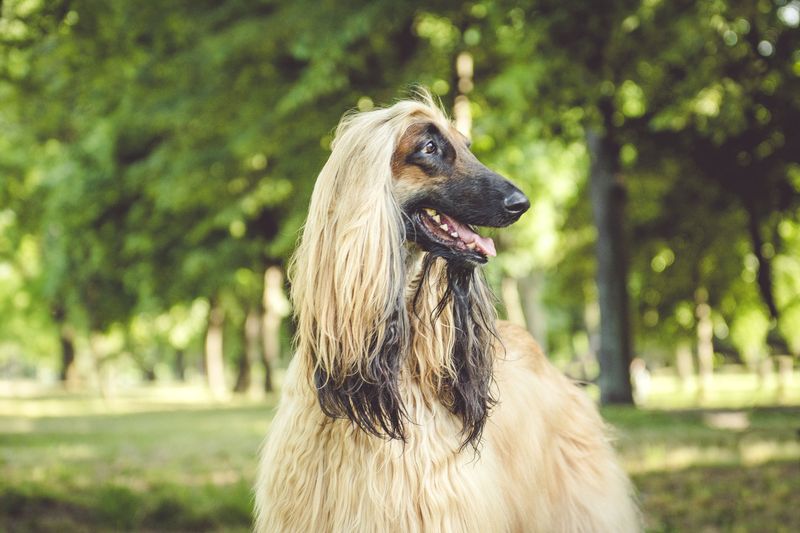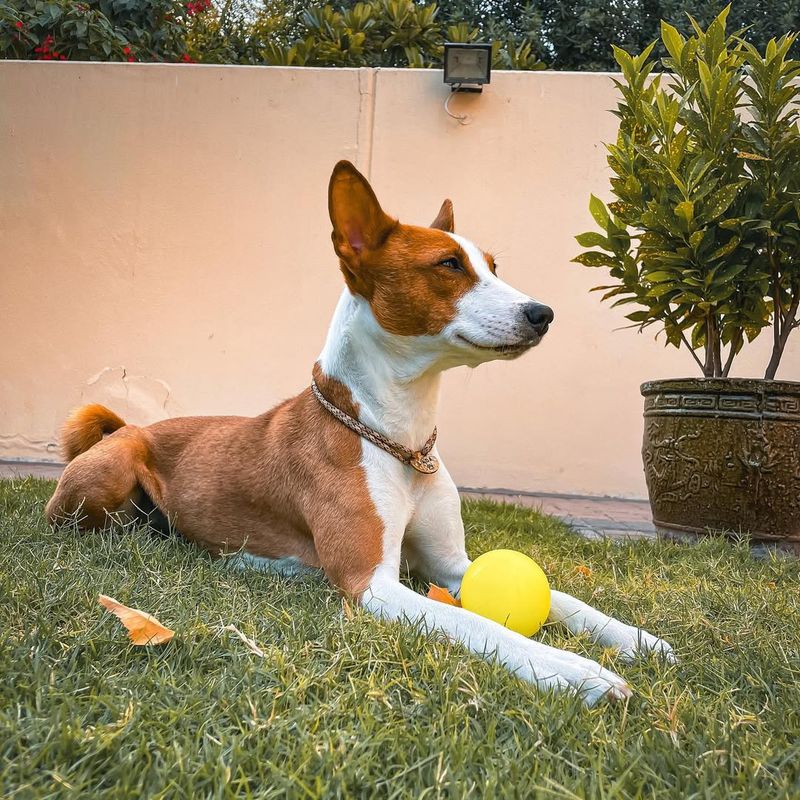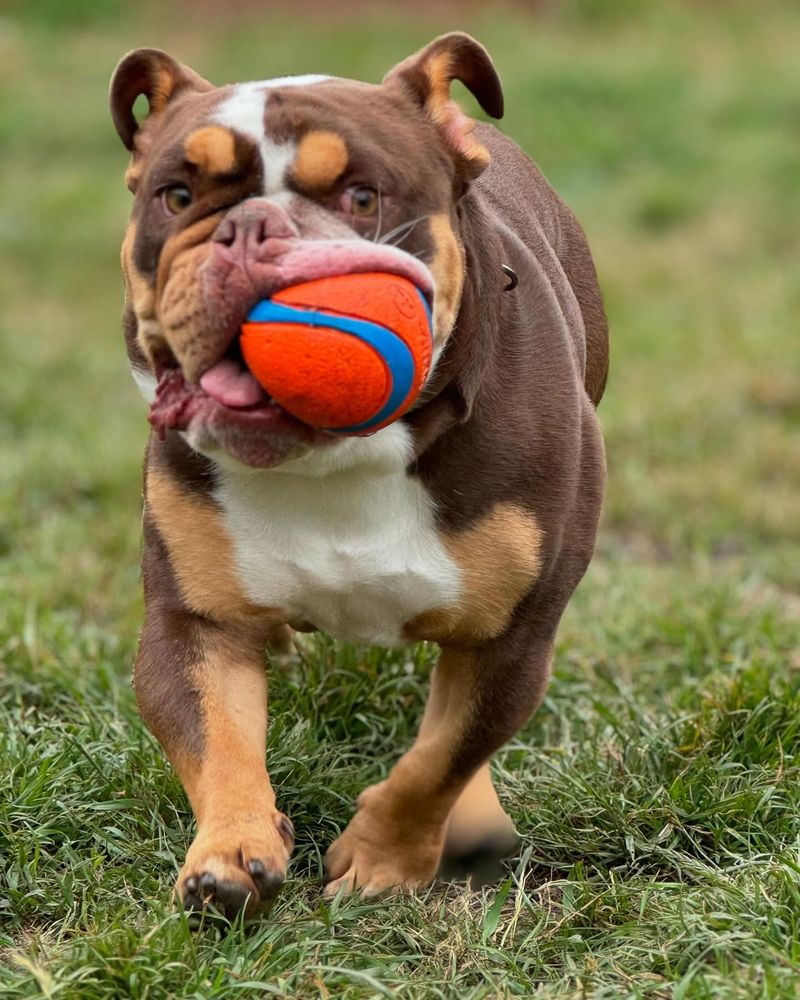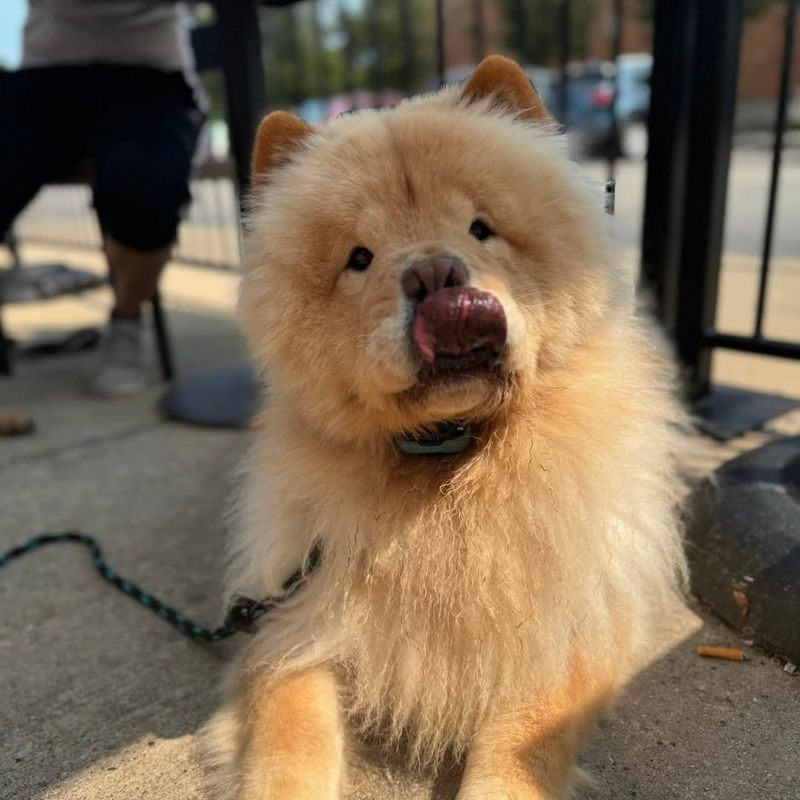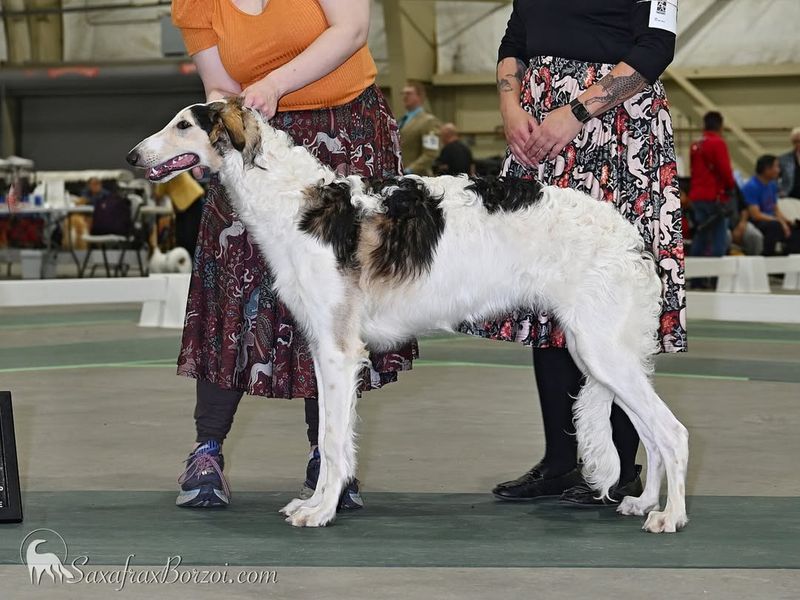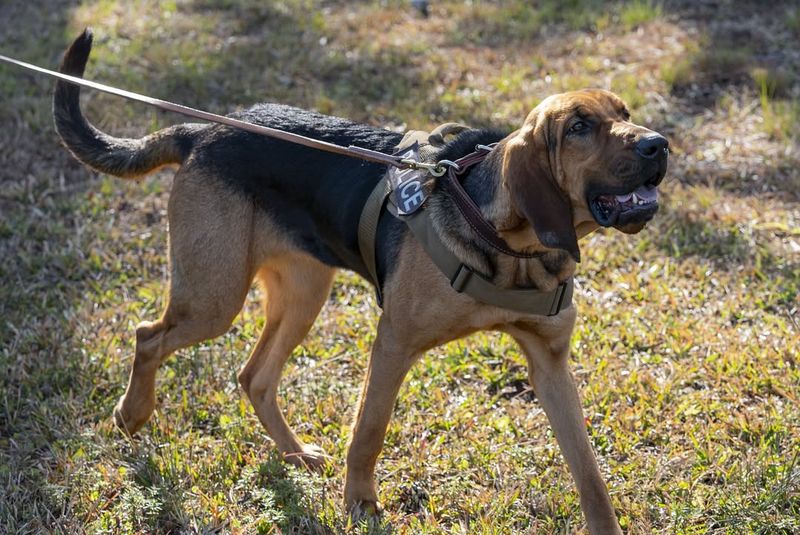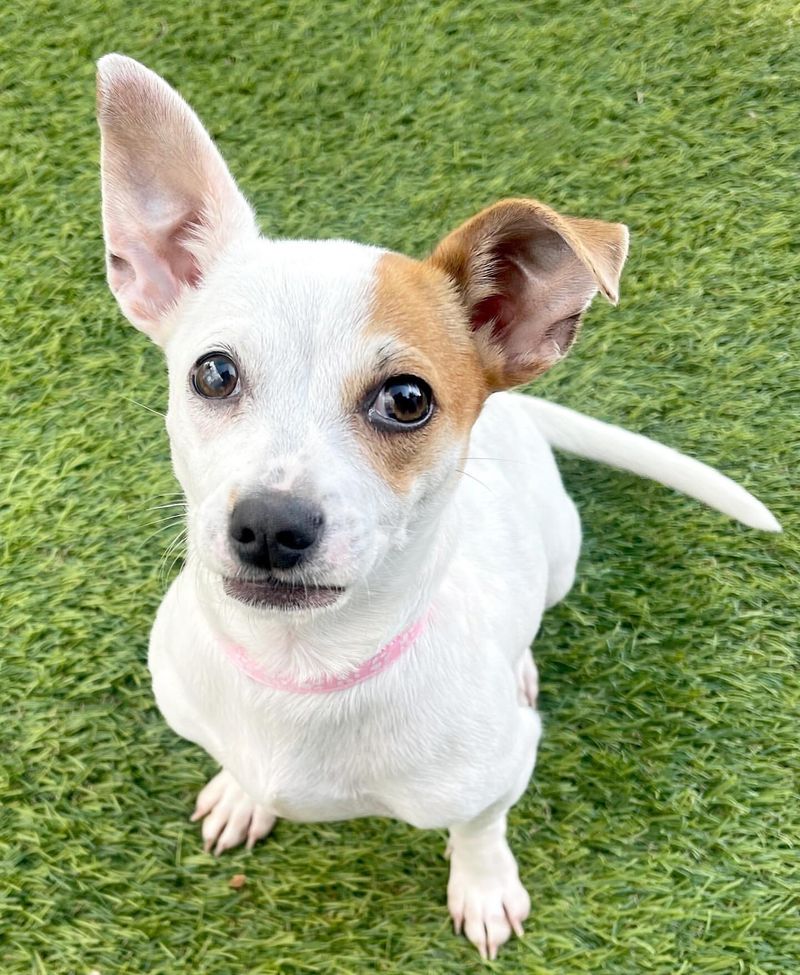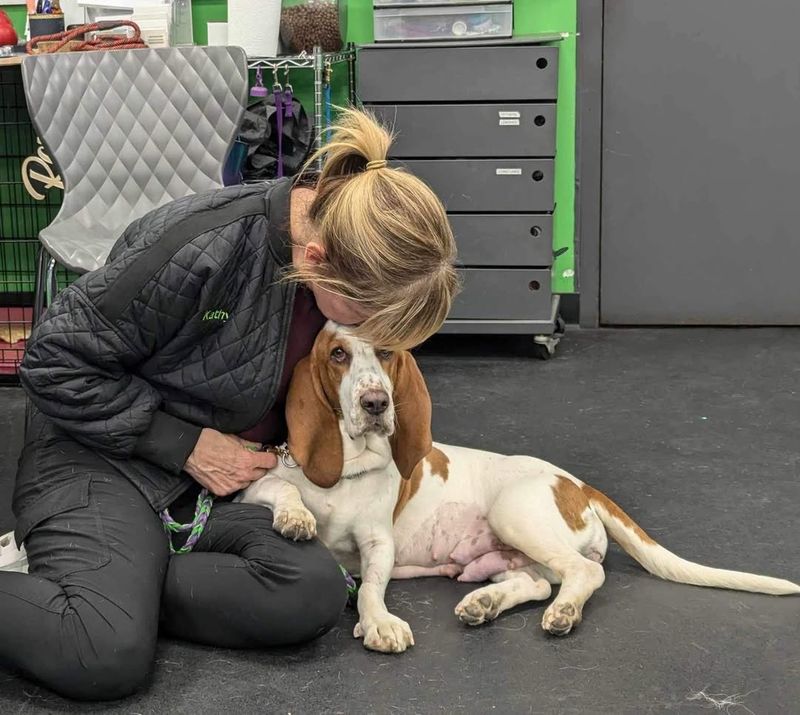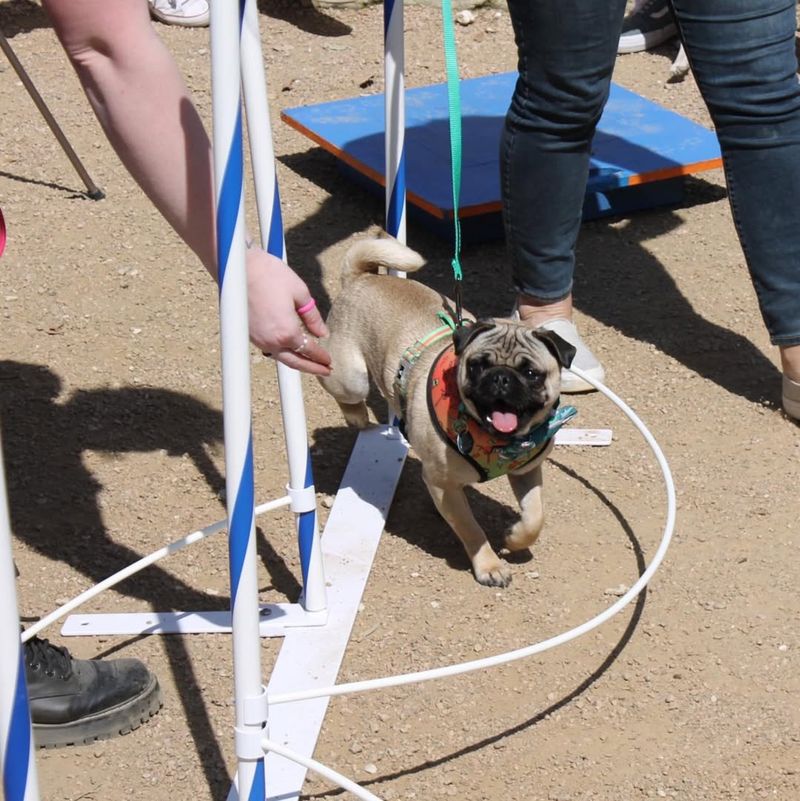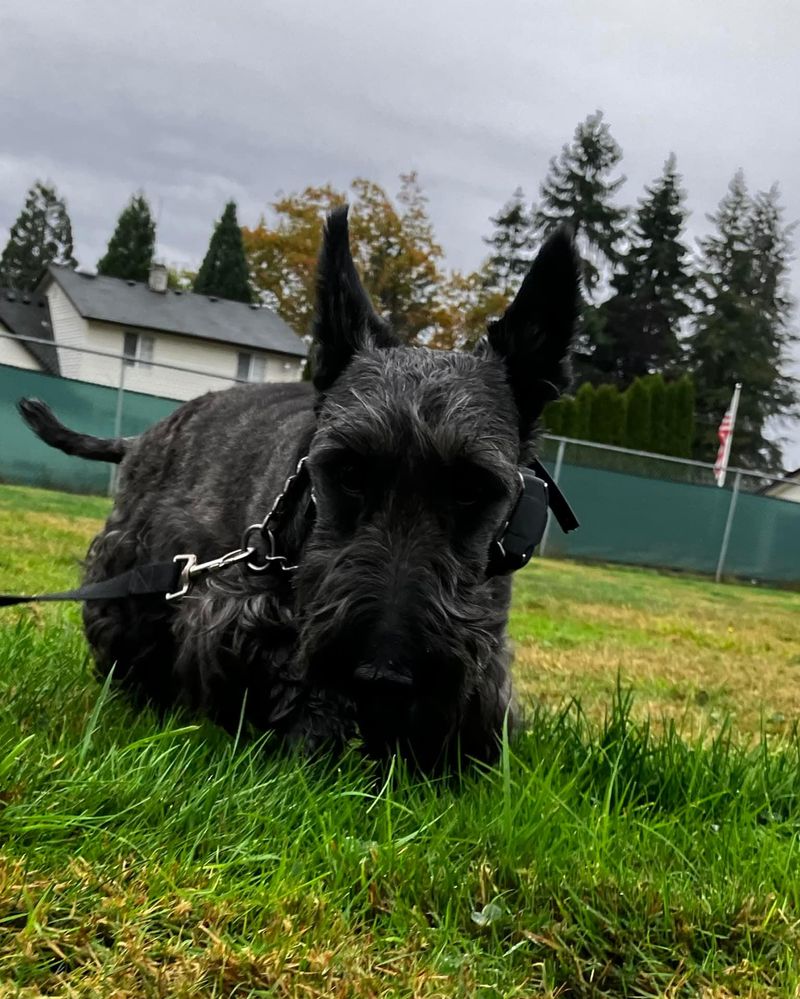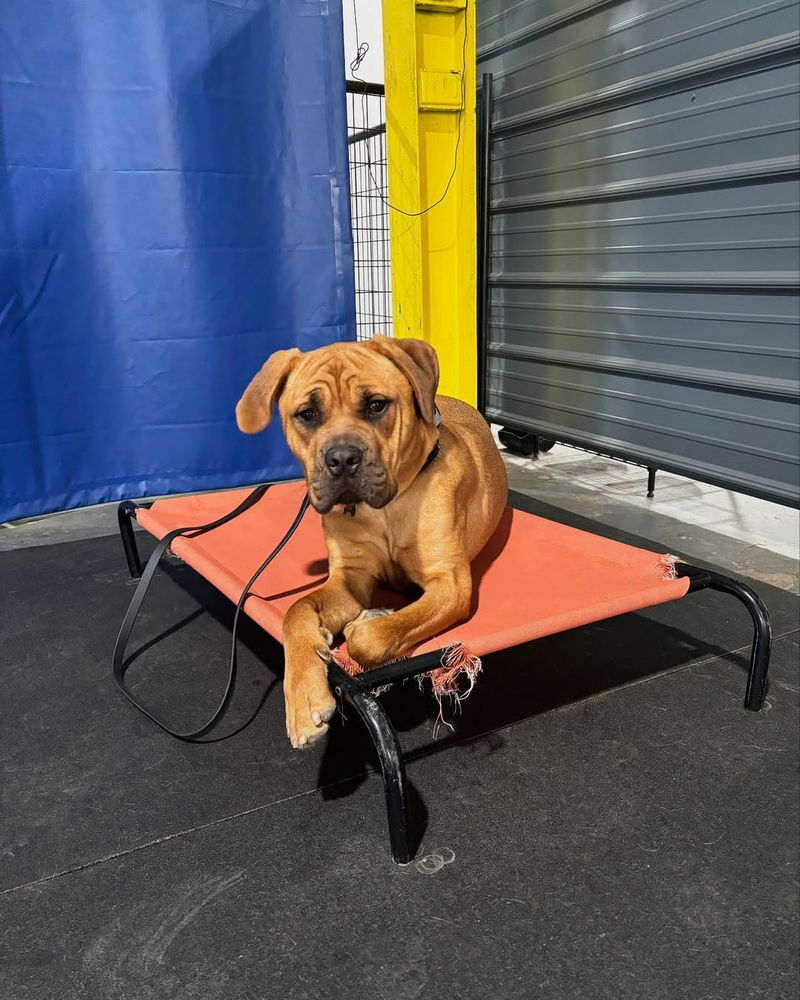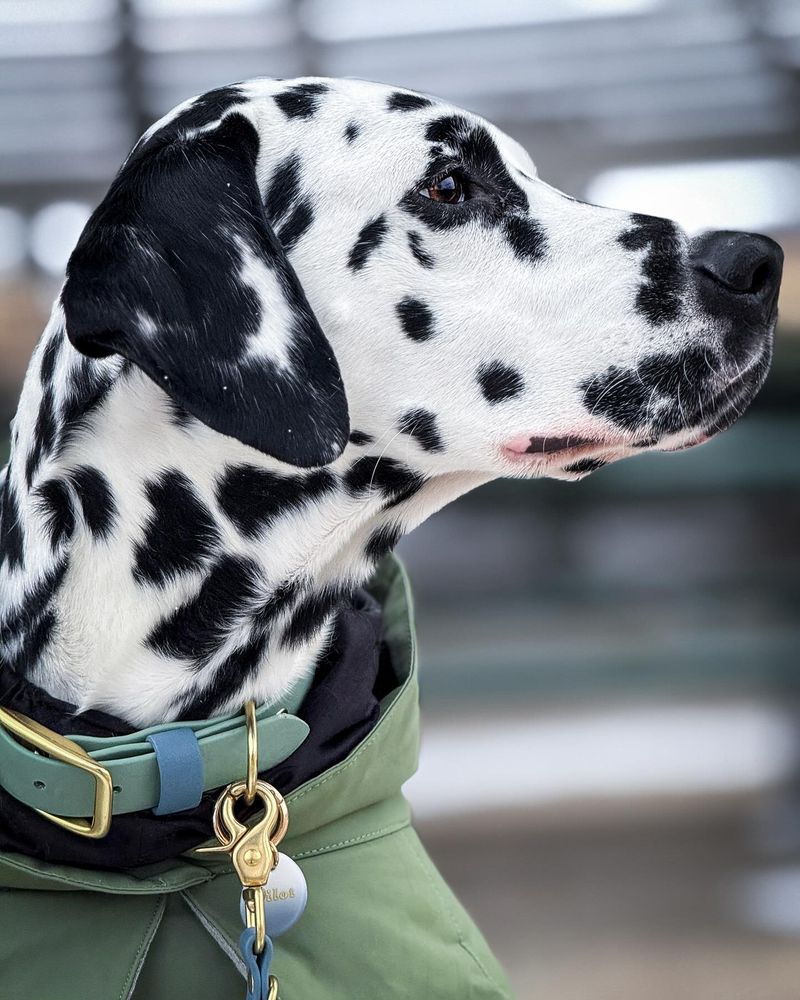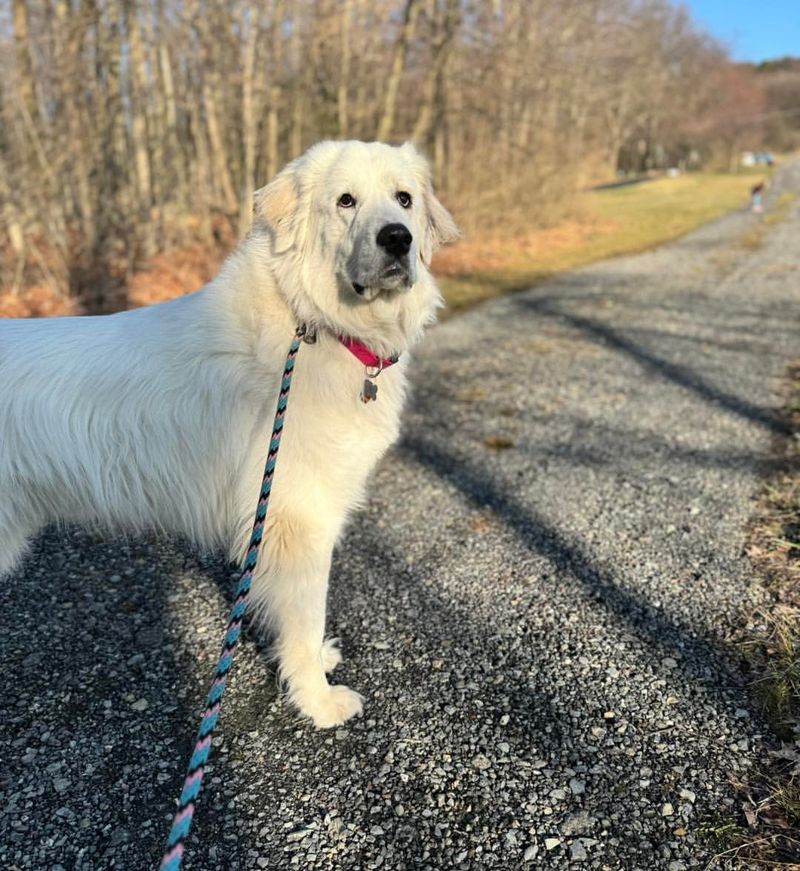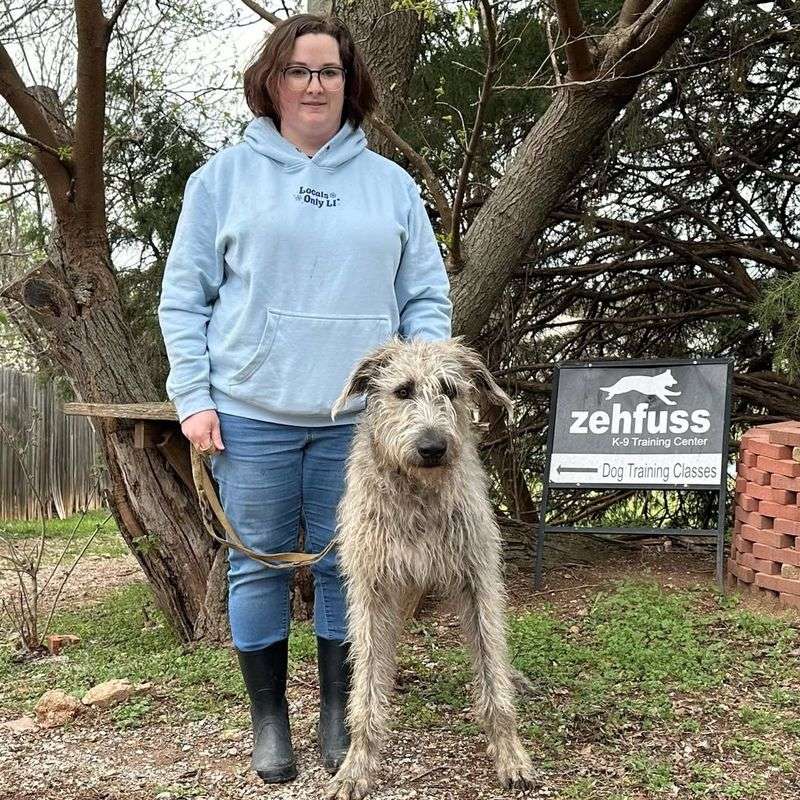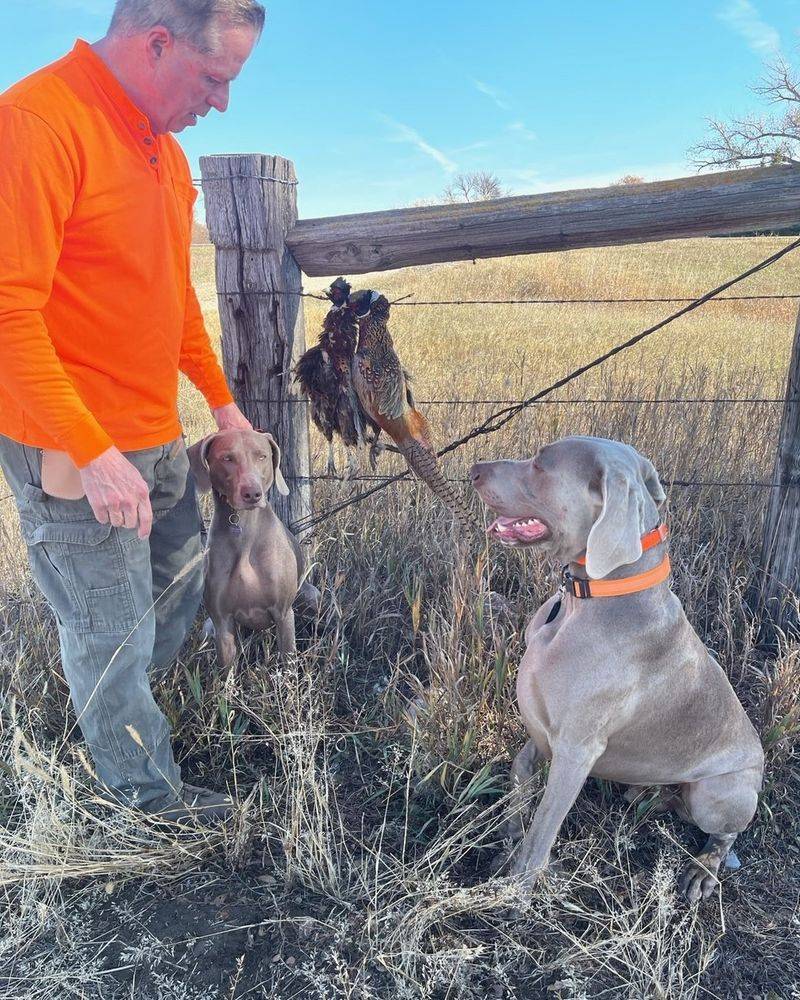Training a dog can be a rewarding experience, but not all breeds are created equal when it comes to obedience. Some breeds are notoriously difficult to train, whether it’s due to their stubborn streaks, independent nature, or unique behavioral traits. Here, we explore 25 dog breeds that often challenge even the most patient trainers.
Afghan Hound
The Afghan Hound is known for its beauty, grace, and aloof demeanor. This breed has an independent spirit, making training a bit of a challenge. They were bred for chasing prey, so their focus is often elsewhere during training sessions.
Owners must exercise patience and consistency, employing positive reinforcement. Their intelligence is undeniable, yet they choose when to display it. Afghan Hounds flourish with experienced trainers who understand their unique traits.
While training can be arduous, the result is a loyal and affectionate companion. Ensure ample physical and mental stimulation to engage their attention.
Basenji
Often dubbed the “barkless dog,” the Basenji is both unique and challenging to train. Known for their intelligence, they require a trainer who can keep up with their cunning and energetic nature.
Basenjis are curious explorers, often distracted by their environment. This breed thrives on routine and structure, which aids in overcoming their training hurdles.
With the right approach, including engaging activities and consistent commands, they can be shaped into well-behaved pets. However, potential owners must be prepared for their independent streak and potential stubbornness.
Bulldog
Bulldogs are beloved for their distinctive appearance and gentle personalities. However, they are not famed for their trainability. Their stubborn nature often poses a challenge for trainers.
Consistent and firm training methods help in managing their willfulness. Patience is crucial, as Bulldogs tend to respond at their own pace.
Despite training difficulties, they are affectionate and loyal companions. Providing motivation through treats and praise can yield positive results. Bulldogs need clear boundaries to flourish, ensuring a harmonious relationship with their owners.
Chow Chow
Chow Chows are known for their striking looks and independent nature. This breed is often compared to cats due to their aloofness and self-reliant attitude.
Training a Chow Chow demands patience and understanding. Their loyalty is unquestionable, yet they often question commands before following them. Early socialization is key in managing their natural assertiveness.
With consistent training and positive reinforcement, Chow Chows become devoted pets. Owners should be prepared for their occasional stubbornness and need for personal space. A gentle hand and firm guidance work best.
Pekingese
The Pekingese, with its regal appearance and dignified demeanor, is a breed that exudes confidence. This small but mighty dog often views itself as the king of the household.
Training a Pekingese can be challenging due to their stubborn nature. They require consistent and positive reinforcement to encourage obedience.
Despite their training difficulties, they are affectionate and make excellent companions. Establishing clear leadership is crucial to prevent them from becoming too headstrong. Pekingese thrive in environments where they feel respected and loved, rewarding their owners with loyalty.
Borzoi
Borzoi, with their elegant and refined appearance, are known for their independent spirits. Originally bred to hunt, they possess a strong prey drive that can complicate training.
Owners must employ patience and understanding, using methods that emphasize positive reinforcement. Borzois are intelligent, yet they often choose when and how to respond to commands.
Early socialization helps in managing their natural instincts, making them more amenable to training. While they may require extra effort, Borzois become loyal and gentle companions with the right approach.
Bloodhound
Renowned for their incredible sense of smell, Bloodhounds are often guided by their noses, which can make traditional training quite challenging. Their determination to follow scents often outweighs their interest in commands.
Training requires creativity and patience, incorporating scent games to engage their interests. Positive reinforcement works best to capture their attention.
Despite their training difficulties, Bloodhounds are gentle and affectionate pets. They thrive in environments where their tracking abilities are nurtured and appreciated, making them excellent companions for those who enjoy outdoor activities.
Dachshund
Dachshunds are known for their bold and curious natures. Their hunting background means they often follow their instincts over commands. Training them requires patience and an understanding of their independent mindset.
Consistent training and firm boundaries help in managing their behavior. Dachshunds respond well to positive reinforcement, especially when treats are involved.
While they may be challenging to train, their loyalty and playfulness are worth the effort. Owners should ensure their training is engaging and consistent to maintain their interest and obedience.
Jack Russell Terrier
The Jack Russell Terrier is a small breed with a big personality. Known for their high energy and intelligence, they often challenge trainers with their exuberance and strong will.
Training requires a strategic approach, with plenty of physical and mental stimulation. Consistency and positive reinforcement are key to guiding their focus and obedience.
Despite their training challenges, Jack Russells are affectionate and entertaining companions. They thrive when given jobs or tasks to do, making them excellent pets for active families or individuals who enjoy an energetic lifestyle.
Shih Tzu
Shih Tzus are known for their charming appearance and independent nature. This breed often believes it is the master of the house, which can pose challenges during training.
Consistent and patient training methods are necessary to guide their behavior. Positive reinforcement works well, but Shih Tzus may require extra motivation to show enthusiasm.
Despite training hurdles, they are loving and loyal pets. Establishing clear leadership helps create a harmonious relationship. Shih Tzus thrive in environments where they feel pampered and adored, bringing joy to their families.
Basset Hound
The Basset Hound is a beloved breed known for its droopy ears and soulful eyes. Training them can be a challenge due to their stubborn and independent nature.
Consistency and patience are essential in managing their behavior. Positive reinforcement, especially with treats, is effective but requires commitment from the trainer.
Despite being difficult to train, Basset Hounds are affectionate and gentle companions. They flourish in environments that appreciate their laid-back attitude and keen sense of smell. With dedication, they become loyal members of the family.
Pug
Pugs are adored for their playful and loving nature. However, their stubborn streak can make training a bit of a challenge. They often do things on their terms, requiring trainers to be patient and persistent.
Positive reinforcement and treats work wonders in capturing their attention. Consistency is crucial to manage their sometimes selective hearing.
Despite training challenges, Pugs are charming and affectionate pets. They thrive in environments where their playful antics are appreciated. With love and patience, they become devoted and entertaining companions.
Lhasa Apso
The Lhasa Apso is known for its striking appearance and assertive nature. Often viewing itself as the protector of the home, this breed can be a challenge to train.
Training requires a patient and consistent approach, with plenty of positive reinforcement. They respond well when they feel respected and understood.
Despite being stubborn, Lhasa Apsos are loving and loyal pets. Establishing clear leadership is crucial in managing their behavior. When given the right guidance, they flourish and become cherished members of the family.
Scottish Terrier
Scottish Terriers, often called Scotties, are known for their independent nature and strong-willed personality. Training them can be a test of patience and persistence.
Consistency and positive reinforcement are key to overcoming their stubbornness. They respond well to trainers who understand their unique traits and provide engaging activities.
Despite training difficulties, Scotties are loyal and loving companions. They thrive in environments where they feel part of the family. With the right approach, they become devoted and entertaining pets, bringing joy and companionship to their owners.
Chihuahua
Chihuahuas are small in size but big in personality. Known for their boldness and strong-willed nature, they can be challenging to train.
Consistency and patience are crucial in guiding their behavior. Positive reinforcement works well, but they may need extra motivation to follow commands.
Despite training challenges, Chihuahuas are loving and loyal companions. They thrive in environments where they feel secure and cherished. With dedication and understanding, they become delightful members of the family, bringing joy and affection to their owners.
Mastiff
Mastiffs are known for their majestic appearance and gentle demeanor. However, their independent nature can pose challenges during training. They often require patience and persistence from their trainers.
Consistent training methods and positive reinforcement are essential in managing their behavior. Mastiffs respond well to trainers who exhibit leadership and confidence.
Despite training difficulties, Mastiffs are loyal and protective companions. They thrive in environments where they feel secure and loved. With the right approach, they become devoted and gentle members of the family, providing comfort and companionship.
Beagle
Beagles are beloved for their friendly nature and keen sense of smell. However, their independent streak can make training a challenge. They are often guided by their noses rather than commands.
Consistency and creativity in training are crucial to capturing their interest. Positive reinforcement, especially with treats, proves effective.
Despite training challenges, Beagles are loving and loyal companions. They thrive in environments where their tracking abilities are appreciated. With patience and understanding, they become devoted and playful members of the family, bringing joy to their owners.
Dalmatian
Dalmatians are known for their distinctive spotted coats and high energy levels. Their independent nature can make training a bit challenging. They require trainers who can match their energy and persistence.
Consistent training methods and positive reinforcement are key to managing their behavior. Dalmatians respond well to engaging activities and clear commands.
Despite training difficulties, they are affectionate and playful companions. They thrive in environments where they can run and explore. With the right approach, they become loyal and energetic members of the family, bringing excitement and joy.
Airedale Terrier
Airedale Terriers are known for their intelligence and independent streak. Their strong-willed nature can make training a challenge, requiring patience and persistence.
Consistent training methods and positive reinforcement are essential to guide their behavior. They respond well to engaging activities and mental stimulation.
Despite training challenges, Airedales are loyal and affectionate companions. They thrive in environments where they feel valued and understood. With dedication and understanding, they become devoted and entertaining members of the family, bringing joy and companionship to their owners.
Great Pyrenees
Great Pyrenees are renowned for their protective nature and majestic presence. However, their independent streak can pose challenges during training. They require patience and understanding from their trainers.
Consistent training methods and positive reinforcement are crucial in guiding their behavior. Great Pyrenees respond well to calm and confident leadership.
Despite training difficulties, they are loyal and gentle companions. They thrive in environments where they feel secure and loved. With the right approach, they become devoted and protective members of the family, bringing comfort and companionship.
Irish Wolfhound
Irish Wolfhounds are known for their grand size and gentle nature. However, their independent spirit can make training a challenge. They require patience and consistency from their trainers.
Consistent training methods and positive reinforcement are key to managing their behavior. Irish Wolfhounds respond well to trainers who provide gentle guidance.
Despite training difficulties, they are loyal and affectionate companions. They thrive in environments where they feel secure and understood. With dedication and understanding, they become devoted and gentle members of the family, bringing joy and companionship.
Cocker Spaniel
Cocker Spaniels are known for their cheerful personalities and lush coats. However, their stubborn streak can make training a challenge. They require patience and persistence from their trainers.
Consistent training methods and positive reinforcement are essential in guiding their behavior. Cocker Spaniels respond well to engaging activities and clear commands.
Despite training difficulties, they are affectionate and playful companions. They thrive in environments where they feel loved and appreciated. With the right approach, they become devoted and energetic members of the family, bringing joy and excitement.
Yorkshire Terrier
Yorkshire Terriers, or Yorkies, are known for their small size and big personalities. Their independent nature can make training a bit challenging. They require patience and consistency from their trainers.
Consistent training methods and positive reinforcement are key to managing their behavior. Yorkies respond well to trainers who provide firm yet gentle guidance.
Despite training difficulties, they are loyal and affectionate companions. They thrive in environments where they feel secure and loved. With dedication and understanding, they become devoted and delightful members of the family, bringing joy and companionship.
Weimaraner
Weimaraners are known for their striking appearance and high energy levels. Their independent nature can make training a challenge, requiring patience and commitment.
Consistent training methods and positive reinforcement are essential in guiding their behavior. Weimaraners respond well to engaging activities and mental stimulation.
Despite training difficulties, they are loyal and playful companions. They thrive in environments where they can explore and exercise. With the right approach, they become devoted and energetic members of the family, bringing joy and excitement to their owners.
Whippet
Whippets are known for their speed and elegance. However, their independent streak can make training a challenge. They require patience and consistency from their trainers.
Consistent training methods and positive reinforcement are key to managing their behavior. Whippets respond well to trainers who provide calm and gentle guidance.
Despite training difficulties, they are loyal and affectionate companions. They thrive in environments where they feel secure and loved. With dedication and understanding, they become devoted and gentle members of the family, bringing joy and companionship.
